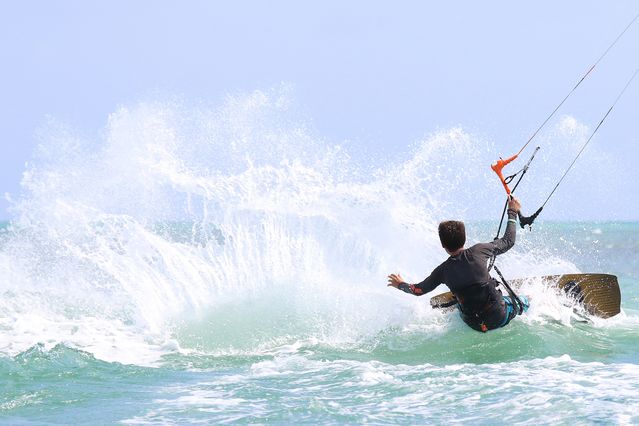Leadership
Three Ways to Recharge Your Batteries Like a CEO
Recovering makes you a better leader.
Posted November 1, 2018

Being a leader can be exhausting. Serving as a role model, being visionary, and stimulating people to think outside the box can leave leaders feeling drained, tired and in need of replenishment. Two recent studies led by Joanna Lin from the University of Massachusetts Amherst found evidence that when leaders use a transformational leadership style, they increase the positive emotions their subordinates feel—but they also tend to feel more emotionally exhausted themselves.
So, what is a leader to do? To recharge their batteries and be at their best, leaders need leisure time. The question is, what is the best way for leaders to replenish? Fortunately, research provides the answer. To achieve a boost and get back into top form, leaders need to do three very simple things.
First, in their leisure time, they need to stop drawing on the resources they used up at work. Part of the reason leaders become drained is because the resources they need to accomplish their work get depleted. To get back to their best, leaders need to replenish those resources by giving them a break. For example, Bill Gates, the founder of Microsoft, takes regular “Think Weeks” during which he secludes himself in a remote cabin. You might not have an isolated hideaway in which to find sanctuary, but you can definitely make a point of ensuring that the activities you select in your leisure time let you restock the supply of specific resources you use up when you’re wearing your leadership hat. Choose activities that draw on resources you don't use at work.
The second thing leaders need to do is satisfy their needs. Needs come in two forms—physical and psychological. Physical needs include things like sleep. An adequate amount and quality of sleep may be the most important recovery mechanism there is. But on average, CEOs sleep 6.9 hours a night which is just shy of the seven to nine hours recommended by The American Academy of Sleep Medicine. Leaders also have the psychological needs to feel competent, to have satisfying relationships, and to feel that their actions are freely chosen. Reshma Saujani, the CEO of Girls Who Code, satisfies her need to freely select activities by scheduling “me time” with herself during which she is free to pursue whatever activities she spontaneously chooses.
Third, leaders need to relax and psychologically detach. Psychological detachment is about putting work out of your mind. If leaders are away from the office but still answering emails and responding to texts, they can’t psychologically detach and won’t fully replenish. Mark Cuban, owner of the Dallas Mavericks, accomplishes this by putting away his phone when he’s at home. This allows him to distance himself from work and mentally disengage from it.

One activity that can satisfy all of these specific requirements is a hobby. Hobbies let us draw on resources that are different from those we use at work, satisfy our needs to feel competent and freely choose how to spend our time, and mentally absorb ourselves so we forget about our work roles and obligations. Any hobby will do. PayPal’s CEO Dan Schulman practices martial arts, Dentsply Sirona’s former CEO, Mark Thierer, plays guitar in a band, and Brian Roberts, CEO of Comcast, plays squash in his leisure time.
Although the pace and workload of leadership can be grueling, leaders tend to have at least a couple of hours a day of free time. Research shows that when we use our leisure time to effectively recover from the stress and demands we face at work, we can undo their negative health consequences, live happier lives, and become better at the tasks that drained us in the first place. Leaders owe it to the people they report to, and the people who report to them, to recuperate in their leisure time so they can be as effective as possible. Also, research reveals that when leaders act as role models for effectively balancing work and non-work time, it encourages their subordinates to try to recharge their own batteries in their leisure time, which translates into a workforce that is less fatigued and more engaged. To the extent that leaders demonstrate that they value successful leisure time recovery, and show others the way to achieve it, they actually broaden the ways in which they display effective leadership.
Here is a one-minute animation about the simple things leaders can do to achieve a boost and get back into top form.


